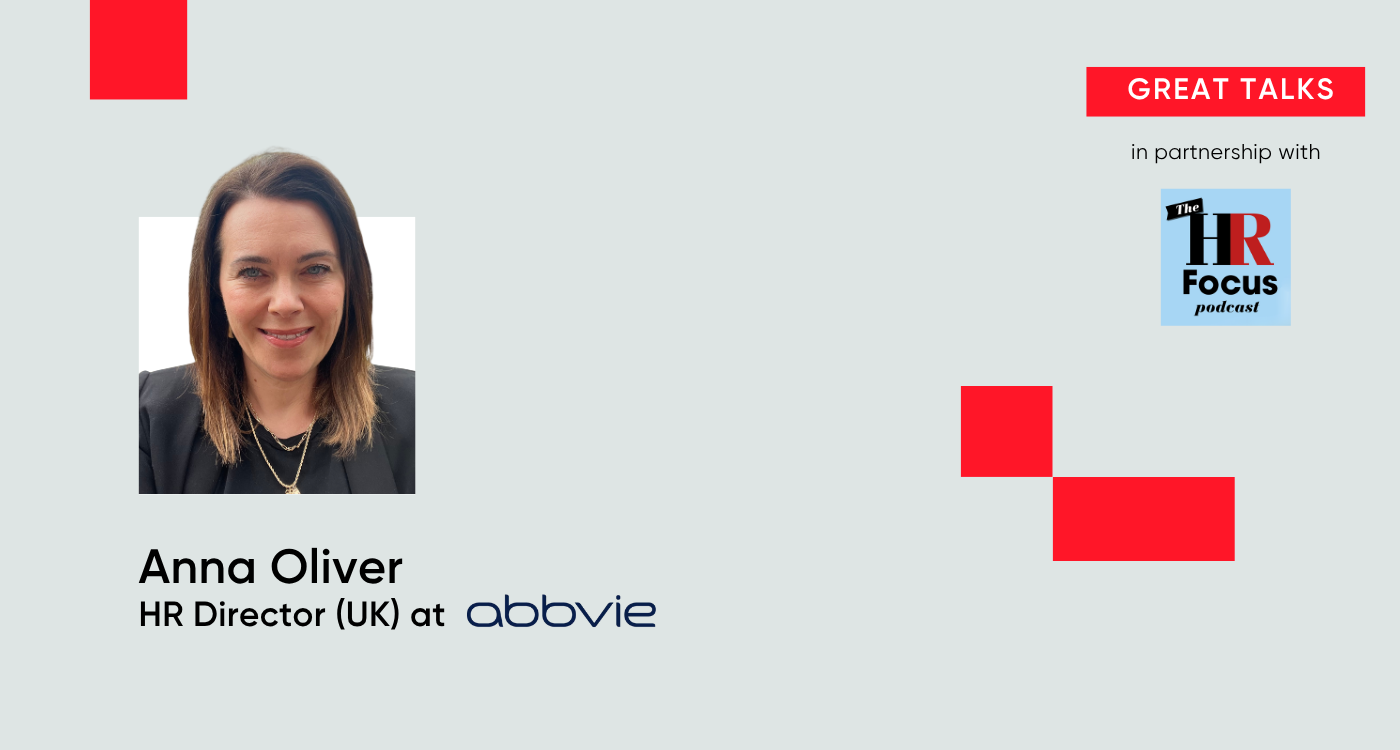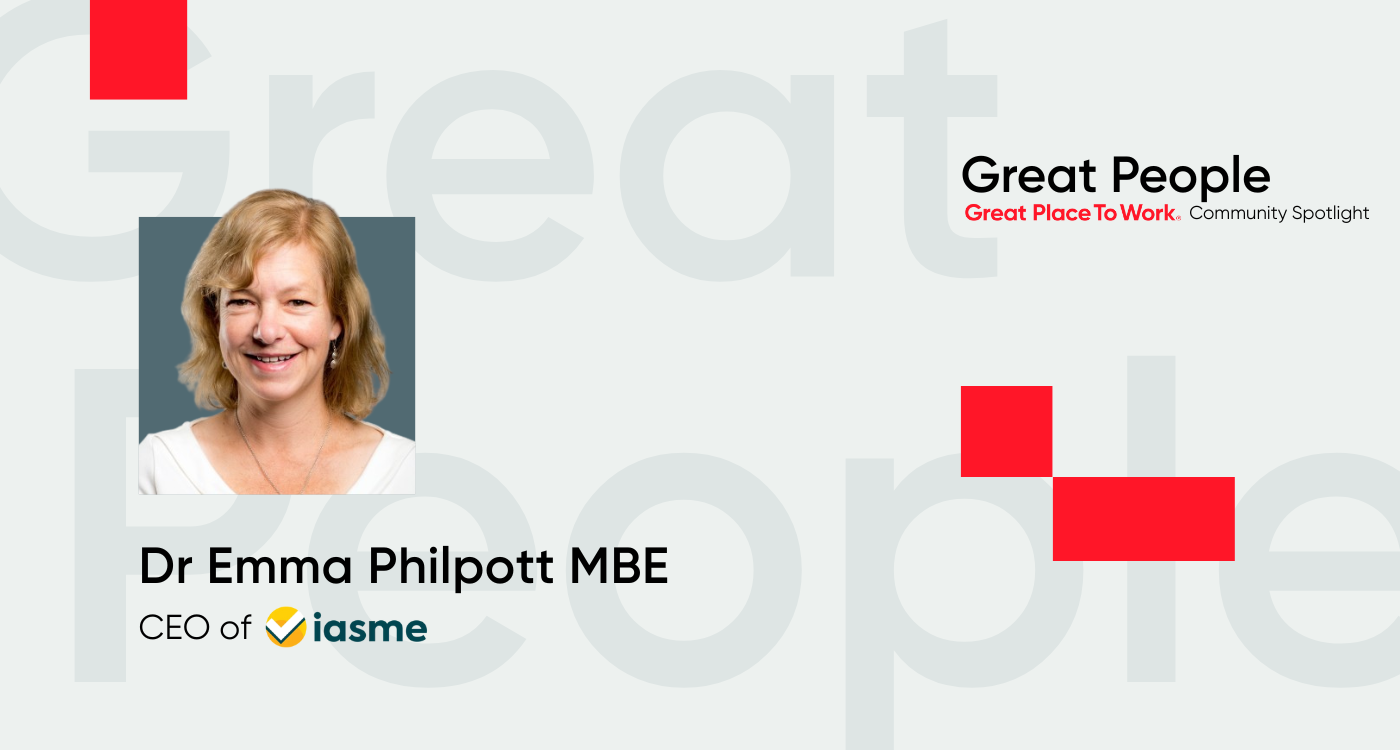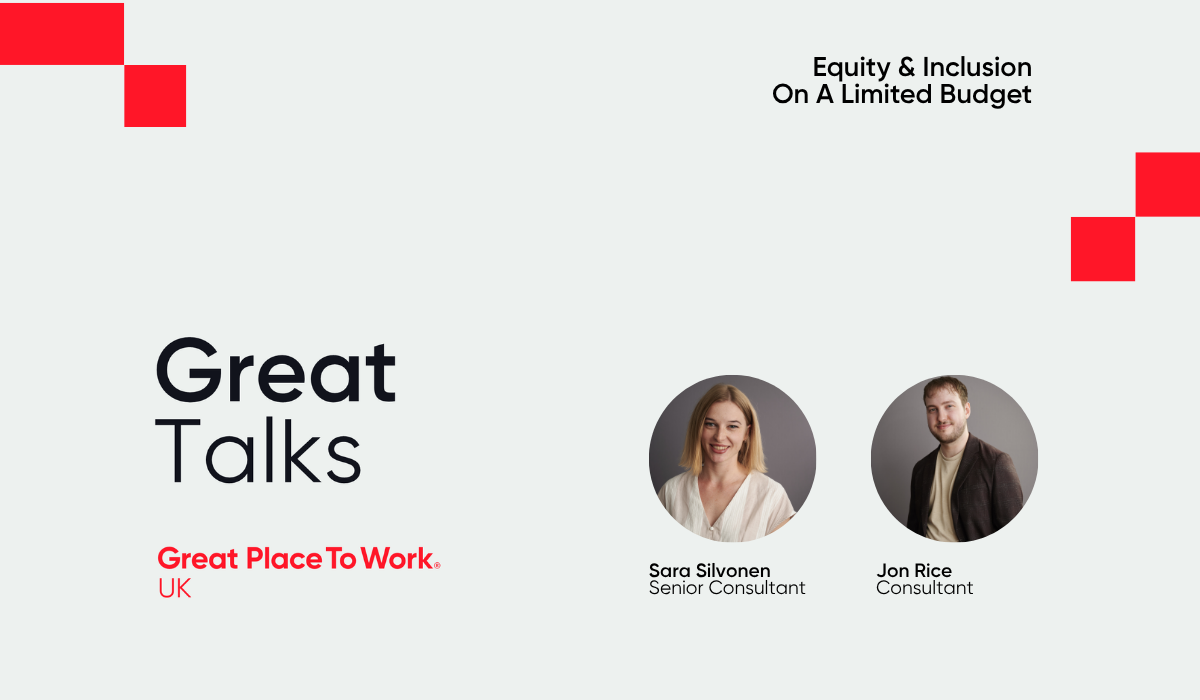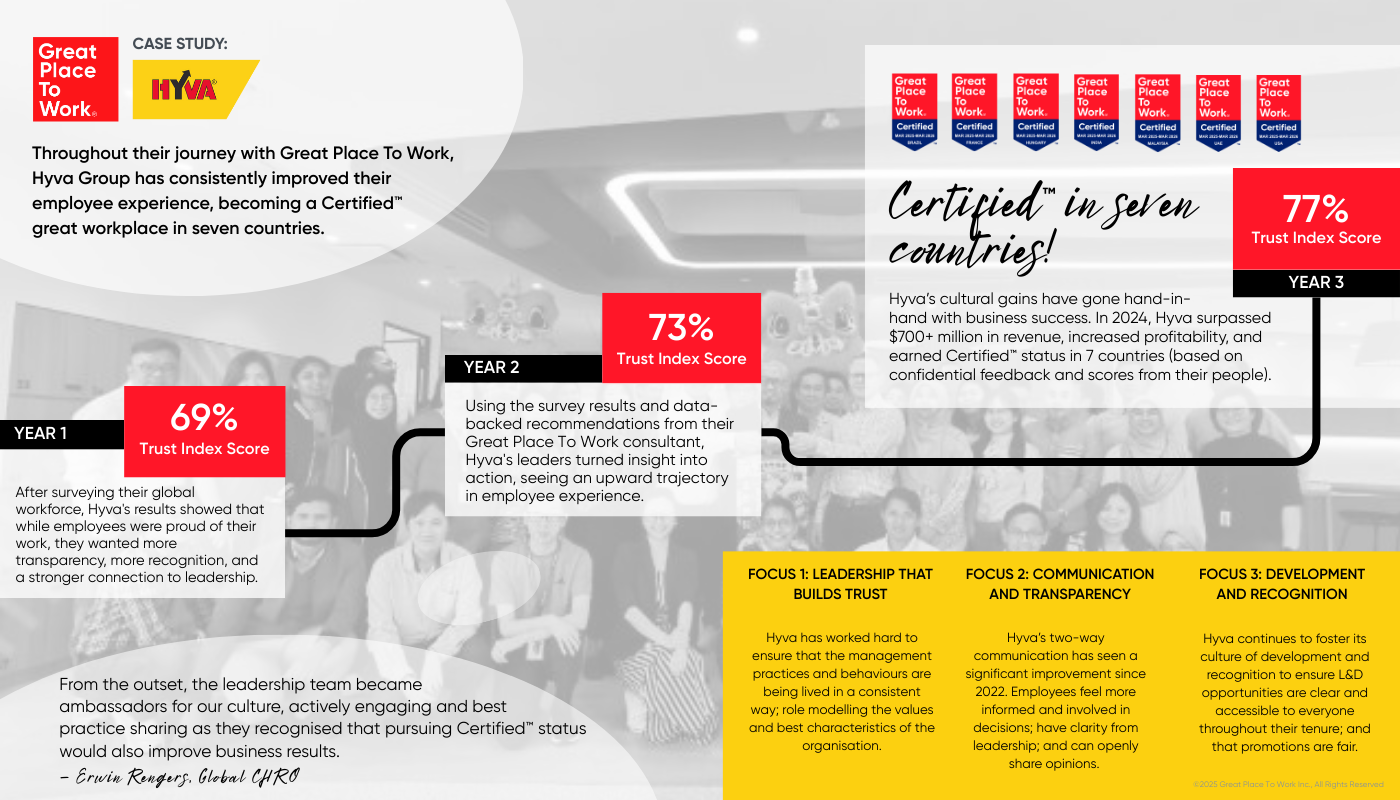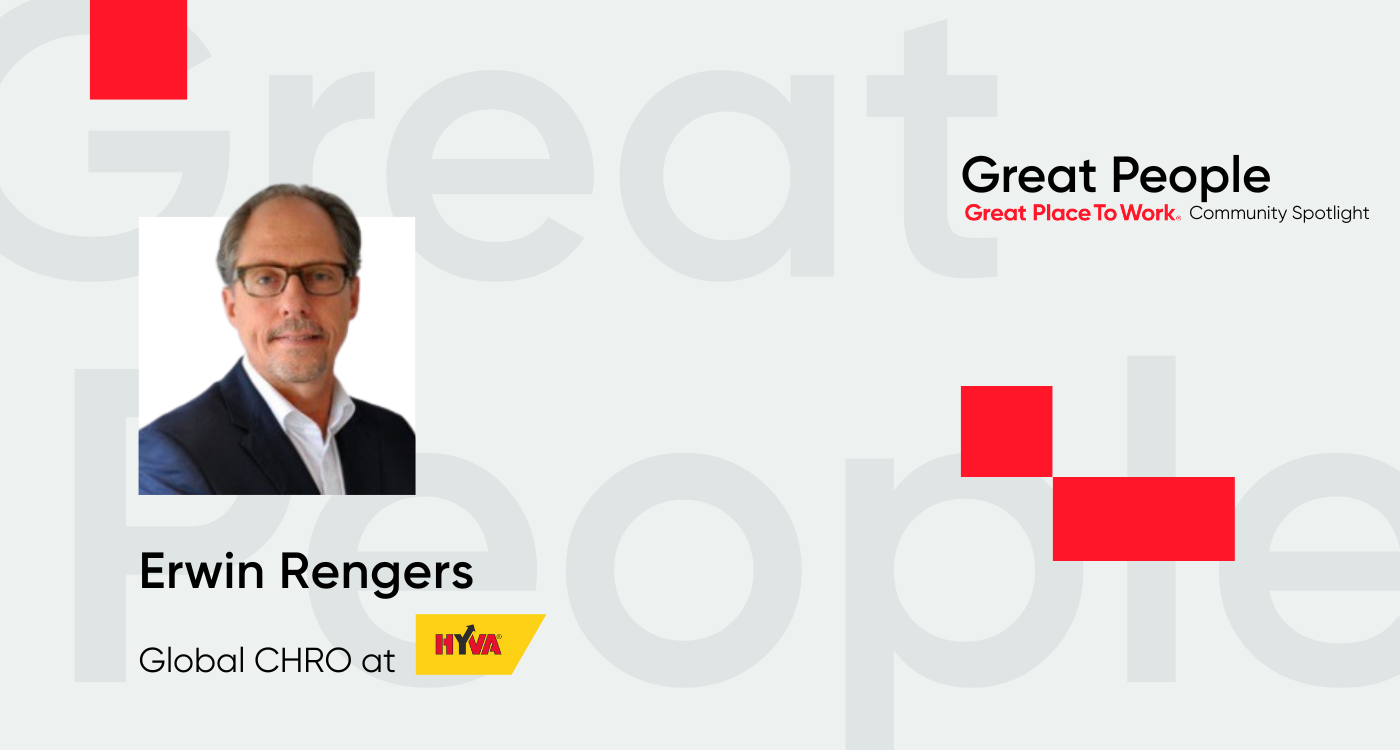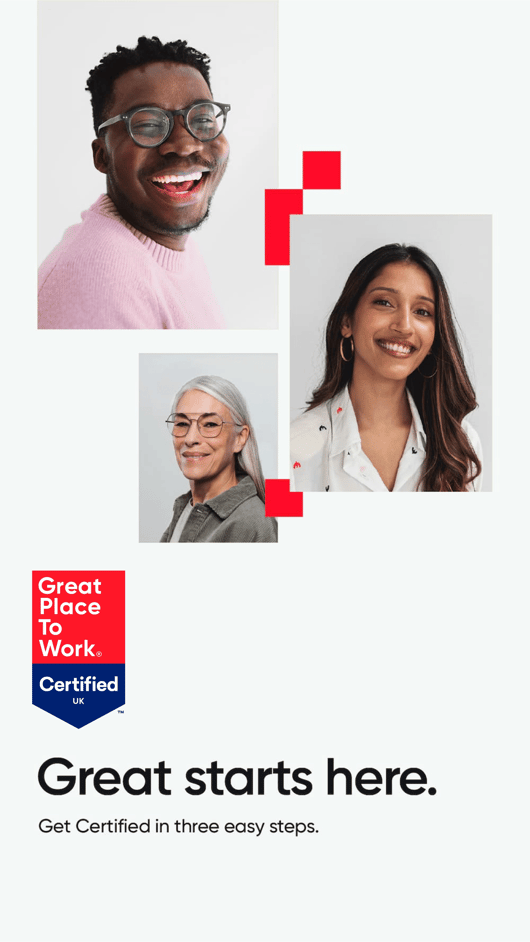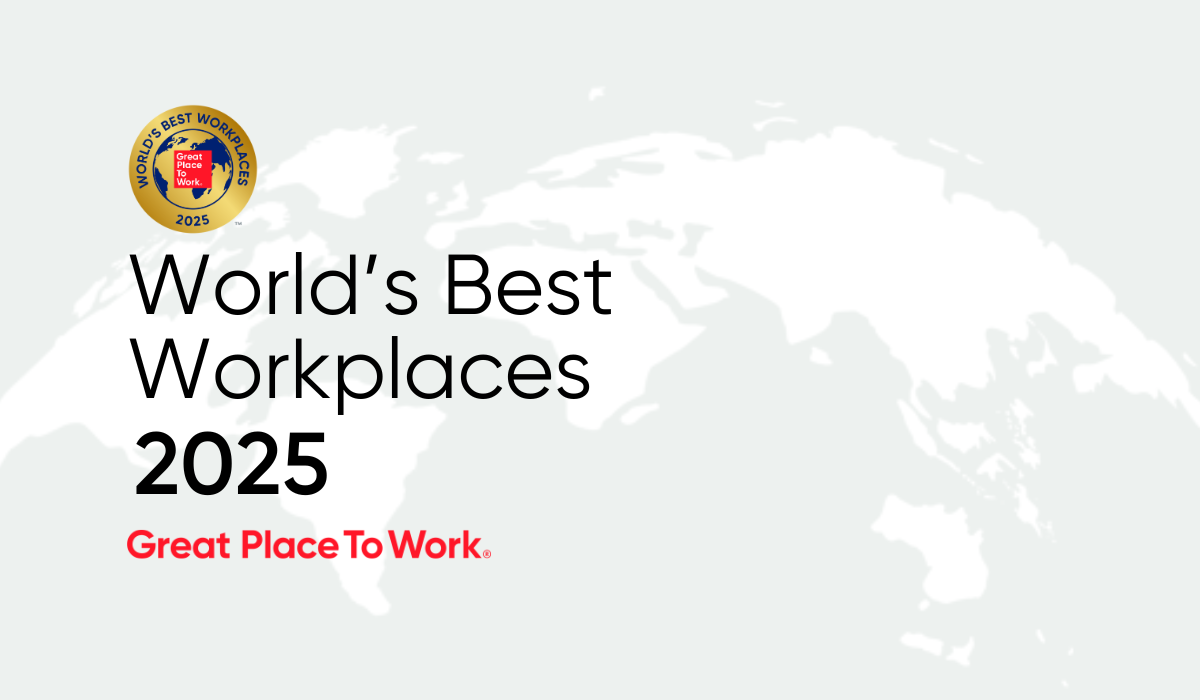In this installment of our special podcast series with HR Magazine, we hear from one of the UK's Best Workplaces in BioPharma™ – AbbVie – on how their award-winning culture has transformed over time; tips on embedding company values across the workforce, and supporting managers and teams to thrive.
Key Takeaways
Anna Oliver, HR Director (UK) at AbbVie shares:
What it means to be a UK's Best Workplace™ for 11 consecutive years:
Anna: As an organisation, our leaders, my team, we are all just super proud of this achievement – and particularly when you look at the fact that AbbVie is only 12 years old as a company!
But more importantly, the survey results really help us track our progress with how we are doing with our culture, which we like to monitor continuously. And it also helps us understand how we are showing up for our employees and how we are showing up for each other.
It also supports us to make adjustments internally to elevate our culture if we need to. And helps us when we are interviewing people or speaking to people in the external market – because again, it's an accolade and it shows that we have a great culture at AbbVie.
How AbbVie's culture has transformed over time, with the support of Great Place To Work data:
Anna: We've definitely been on a cultural transformation journey. I would say that, as a new biopharmaceutical company at that time, we looked at really trying to become more agile; breaking down hierarchies; being very transparent with our employees and our communication. We've really tried to become that more nimble and flexible organisation to keep up with the times and to be able to serve the best for our patients as well.
This is all rooted in our five 'AbbVie Way' behaviours, which are the foundation of our culture, and were launched at our company's inception. They're a little bit like our cultural cornerstone, and everything relates back to these:
1. 'All For One AbbVie': is all around collaborating, doing things with an enterprise perspective in mind.
2. 'Clear and Courageous': is about having an opinion, expressing it, but doing it in the right way; challenging each other so we can get better results and better ideas coming forward.
3. 'Decide Smart and Sure': is about being brave and making decisions maybe with less than perfect information.
4. 'Agile and Accountable': being flexible, being agile, pivoting and changing scope when we need to.
5. 'Making Possibilities Real': connect the dots, pull through projects, and have really stellar results for our patients.
How we work together is paramount, and what we say as well is how we do things is just as important as what we achieve. We've all heard the phrase culture eats strategy for breakfast, but it all starts with culture and it's so important. These behaviours are really our North Star.
We also hold people really accountable for these behaviours, and they're embedded in a number of our HR processes. For example, when we are recruiting, when we are interviewing candidates, we will ask interview questions that are seated within those behaviours. And our annual performance review process also is based around these behaviours as well. It's also how our colleagues get to recognise their peers through our AbbVie employee recognition programme, which is a great way of being able to flexibly reward and recognise colleagues when we do see these cultural behaviours playing out.
How AbbVie is embedding core values across the organisation:
Anna: You just can't underestimate the importance of the role the manager plays in terms of bringing culture to a team and bringing culture to an organisation. Managers are absolutely critical. We have a phrase at AbbVie, which I love: "Managers bring the weather" – in other words, the mood, how the team are feeling, the level of ambition. It all starts with a manager. We, as an HR function, try and support leaders as much as we possibly can to "bring the weather", and we hope that weather's going to be lots of sunshine.
Another example, our AbbVie Talent Philosophy, really sets out expectations of how managers should lead and develop their teams and thus develop their culture. This is very much grounded in performance, behaviours, differentiation, accountability and transparency. And when we see managers living and breathing this talent philosophy, we always see increased engagement and this, in turn, is going to drive the business performance and enable us to meet the needs of our customers and ultimately our patients as well, which is why we are here.
The other thing we have is our new leaders that join our organisation, or employees who get promoted up into leadership roles. We have a really great course called Leading at AbbVie, which is there to support the transition into their role as a leader, offering them the development of skills needed to meet our high standards for driving performance and behaviours, and ultimately for bringing the right weather conditions to their team. We have other development curricular and development courses that also go on in the team, to really support our managers so that they can just do the best for themselves, their team, and our organisation.
Acknowledging managers' top concerns and empowering them to tackle future challenges:
Anna: There are probably three things that are top of mind when it comes to concerns or issues that I hear managers talk about frequently:
1. Ensuring employees' wellbeing – getting that balance right between work and life, and ensuring our employees have the resources that they really need to support them.
2. How they, as leaders, can help their teams leverage the best technology and make decisions with data to stay competitive.
3. How leaders can build an internal and external talent pipeline as a priority, so that when they do have vacancies and when people move on, they have a really rich talent pool to dip into.
My HR business partner team are very much out there with the business. They liaise with leaders very regularly, so they have that relationship where managers will open up to them about their concerns. First and foremost, it's about becoming trusted advisors, having peer-to-peer conversations, and then that allows these conversations to happen and come out organically.
I think with wellbeing, one of the things my team are doing is making sure that leaders are very aware of where all our great wellbeing resources are. So as a large corporate organisation, we have a great employee assistance program; we have lots of training that managers can tap into; resources for employees where they can go (for example, there is menopause support; there's support if you have multiple migraines) there's lots of things out there, and employees don't always know how to navigate these resources. So as an HR team, we need to make sure leaders know where these resources are, and they can be empowered to promote these within their teams.
When it comes to the talent strategy, it's really around ensuring we have robust succession plans – and these can have both internal employees and could look at the external market as well. So where we have talent succession gaps, what are we doing externally to find people that could fill those gaps, should we need to? And again, the HR team work with leaders to run through lots of prioritisation and talent mapping and purposeful placements where we could put people should we need to. And if we have a gap, let's start looking externally to see what's out there in the market.
And then finally, it's around the decisions with data: We run a series of AI informational workshops, which help the business understand how they can leverage AI to help them in their day-to-day activities or help themselves solve problems. Again, my team can look at linking them up with the right people to get those in check as well. Coming together and making sure leaders know they can come to the HR department – it needs to be seamless. And when it does, then everything is more agile and things move forward and we solve problems quicker.

How Employee Resource Groups (ERGs) are supported by the C-Suite and influence culture:
Anna: I'm really proud to say that all seven of our Employee Resource Groups (ERGs) are employee-initiated and employee-led, so they've been built from the ground up by employees that are really keen to have an impact on inclusivity and diversity across our organisation.
But each ERG does have an executive sponsor from our leadership team who acts as a sounding board to help them with their ideas and how they put their best foot forward. This sponsorship involves regular check-ins, participation at events, and they also receive structural support (including budgets as well) to help them achieve initiatives that they want to put forward. So our ERGs really do drive a sense of inclusion and a strong sense of belonging across our organisation, and lots of our employees are either signed up to the ERGs, or they're on the committees – again fostering this sense of belonging.
What I love about the ERGs is they are really strong contributors to our culture, and they provide opportunities to bring colleagues together to network; to learn and develop new skills; to collaborate on projects, as well as bringing employee feedback forward to help inform our culture. And what I've seen over the last few years, particularly the last couple of years, is that they truly drive that culture of inclusion that we're striving for and a strong sense of belonging.
This comes from a number of avenues: through formal feedback, through our surveys, they get insights that can help them shape their activities for the following year. But also from the committee members of that ERG and from others that are signed up to the ERG, they get a sense of the pulse of how people are feeling and what they need to do as a result of that.
A great example is one of our newest ERGs called the 'Young Minds Group', where our early career AbbVie talent are signed up to this. One of the things that was fed back by the group was that they wanted to understand more around early career paths, and the sorts of career paths they could have at AbbVie. As a result, we've held a number of lunch and learns where the young minds ERG have interviewed early career talents throughout our organisation. A bit of an interview and a 'day in the life of' these people to understand how their careers have been mapped out, and this has really helped other young minds to think about how their career could be mapped out.
Why 'care' is so important to AbbVie's 50,000 employees around the world:
Anna: Care is massively important for us – it's one of our cornerstones. Even when AbbVie became an independent company in 2013, we intentionally set a very clear mission that aligns our employees to our greater purpose, which is all around creating a remarkable impact on people's lives, and expresses why we all come to work each day.
You can feel that when you are walking around the office, or you are out in the field with people: you can feel that our employees are here because they want to make that remarkable impact on people's lives. It's great to see! And this together with our AbbVie principles, which make it clear who we are and what we stand for as a company, are the foundational building blocks of AbbVie. They're woven into our decisions. They guide our actions, they're key to our cultural success, and they're key to how we've become the organisation we are today.
How to become an employer of choice and what HR leaders should focus on right now:
Anna: Why I believe AbbVie is so successful is that we have strong values and we live by them. It's very easy to have a set of behaviours, a set of principles, a set of values that are just written down. But to actually continually deliver and live these values, day in, day out, is what I see AbbVie does. AbbVie leaders do it, and in turn, AbbVie employees do it as well.
Culture and talent retention and attraction are intrinsically linked. They are highly correlated. So if you don't have the right culture, people won't want to come and stay and grow in your company. So having that strong cultural identity is the most important thing. It's about building, developing, elevating your culture. Don't stop! It's a consistent journey. It will never end, but that's the thing you need to focus on to be a successful organisation.
For HR leaders specifically, my advice is always to stay close to the pulse of the organisation. Don't assume you know how employees are feeling. It's a very easy trap to fall into. You just think that the people you surround yourself with are representative of the whole organisation, and that's not always the case. I would say to HR leaders: when you are out with the business, ask questions, get curious, be provocative as well, and above all, listen and be open to the answers that you get.
Proudest moment:
Anna: Looking at the impact that myself and my team have had on people's careers. We talk a lot about focusing on career and development, as I know many organisations do. I really feel that we walk the talk on this. Investing in people's development and giving them experiences to enhance their careers as they move forward is something that we see a lot. I have conversations with people daily, as my team do, and I can see that this in some small way helps elevate their careers, and I think that's the thing I'm most proud of.
I see that as well in my own career because I've had an amazing career at AbbVie. It's been a career of two halves: the first half was all on the commercial side, when I was a sales manager at AbbVie when I walked through the door and interned other roles in commercial excellence as well. And then I made that transition over to HR, and my second part of my career with AbbVie has been within the HR team. Then more laterally stepping into the role of HR Director. So AbbVie took a big bet on me. They took a chance on me to change my career trajectory, and I'll always be thankful for the leaders that supported me and helped me take that big leap.
I saw that then, and I've tried to emulate that with others as I've gone through my career in HR as well.
🎧Up next: Employee Development On A Limited Budget
In this next podcast, our very own culture experts, Seema Shah (Director of Consulting) and Luciana Barchet (Principal Consultant) share their tips for how employers can support employee development without breaking the bank. Listen here.
